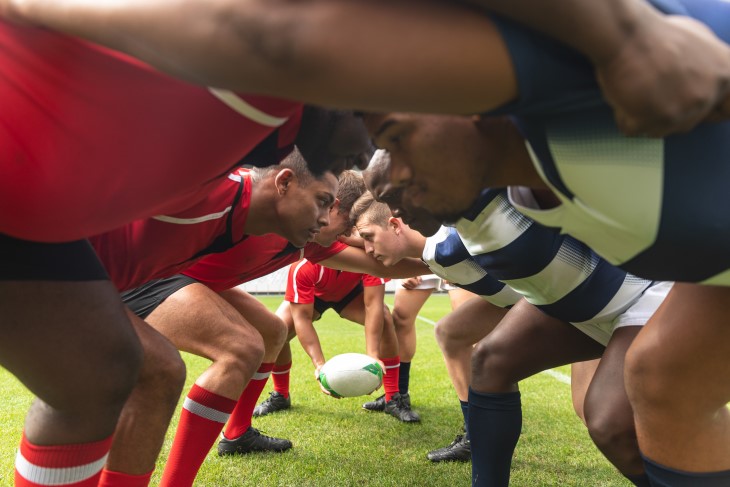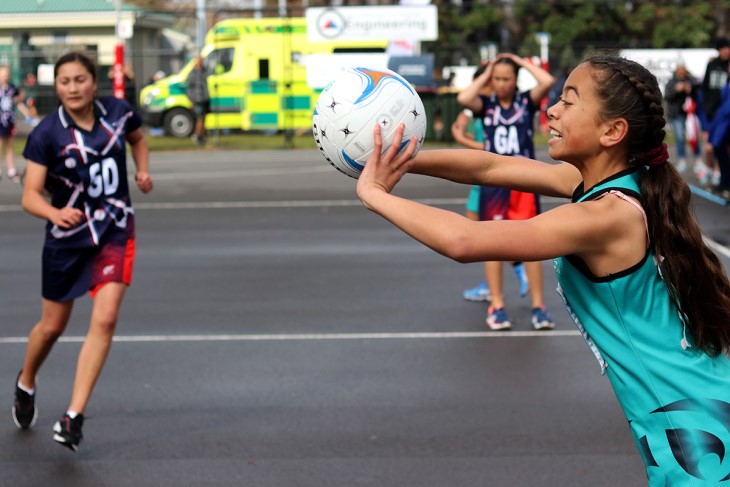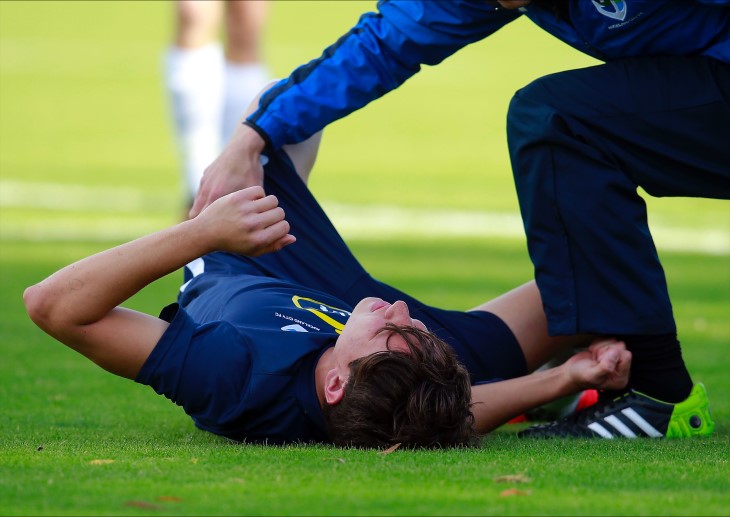Stay safe as winter sports season kicks off

As the first matches of winter sport get underway, many keen players are eager to take the pitch. But remember, staying safe on the pitch is critical to enjoying the sport all season long, says ACC Injury Prevention Leader James Whitaker.
Injury claims for netball, football, rugby union, rugby league, and basketball peak around May as many club seasons get underway.
“One of the best ways to prepare your body and avoid early season injuries is by starting your training well before the season starts,” says James. “Gradually build intensity in the lead-up to the season and put your body through the movements you’ll use in the game.”
An effective warm-up and cool down will also reduce your chance of injury. “A dynamic warm-up should be done before every training and game, and a cool down after to gradually bring your body back to a resting state. This is also a good time to include static stretching,” James adds.

The cost of injury claims
Winter sports-related injury claims have consistently increased over the past five years. So has the cost to help people recover from these injuries .
ACC data shows from 2020 to 2024, there were 106,099 netball claims, 262,700 rugby union, 204,383 football, and 35,695 rugby league claims, costing a total of $1.14 billion.
ACC partners with key sport organisations to deliver sport-specific programmes in rugby union, netball, rugby league, football, touch, and basketball. These programmes are designed to educate players, coaches, and referees about how to prepare well, minimise injury risk, and perform at their best.
James encourages all players to take advantage of ACC’s injury prevention tips available on the our website. “People can visit the site, let us know what sport they’re interested in, and receive injury prevention tips to continue doing the things they love.”
Be conscious of concussions
At the start of 2024, ACC announced new National Concussion Guidelines for community sport. This put player welfare first and introduced a standardised approach for a safe return to play after a concussion.
Our research suggests that around 1,100 sports-related concussions go unreported each year in New Zealand. This is consistent with international data. With early recognition and management of concussion, players can make a full recovery and remain engaged in sport for life.
Coaches, physios, trainers, and officials can play a vital role in identifying head injuries, but there may be times in a game when they don’t see it happen. If you see someone showing signs of concussion, encourage them to follow the guidelines and leave the field or activity. They need time to recover and get back to being game-ready.

National Concussion Guidelines
- When a player suffers a concussion, they must be symptom-free for 14 days post-injury before a graduated return to play.
- They must complete a minimum period of 21 days away from full competition before clearance to return.
- Clearance from a health practitioner experienced in concussion management is strongly recommended prior to return to play.
Winter sport injury numbers
- In 2024, the cost of supporting people with rugby union-related injuries topped $147.5 million for 59,242 claims, football-related injuries cost $78.5 million for 48,232 claims, rugby league cost $29.5 million for 10,079 claims, and netball-related injuries cost $48 million for 23,796 claims.
- Football and netball injuries were most common among 10-14 year olds, while rugby union and rugby league injuries were most common among 15-19 year olds.
- In 2024, ACC accepted 12,045 claims for sports-related concussion, costing $81 million to help people recover.
- The age groups with the highest number of sports-related concussion claims last year were 15-19 year olds (3,061), followed by 10-14 year olds (2,511), 20-24 year olds (1,711), 25-29 year olds (1,055), and 30-34 year olds (780).
- Rugby Union had the highest number of winter sports-related concussion claims (3,316), followed by football (1,218), rugby league (624), and basketball (418).
Top tips to avoid injury this season
- Gradually increase training intensity and contact training.
- Spend time working on core strength and balance.
- Practise sport-specific movements you will need to use in a game.
- Warm-up well before games and perform a gradual cool down afterwards.
- Hydrate well and eat something nutritious and protein-rich post-game.



